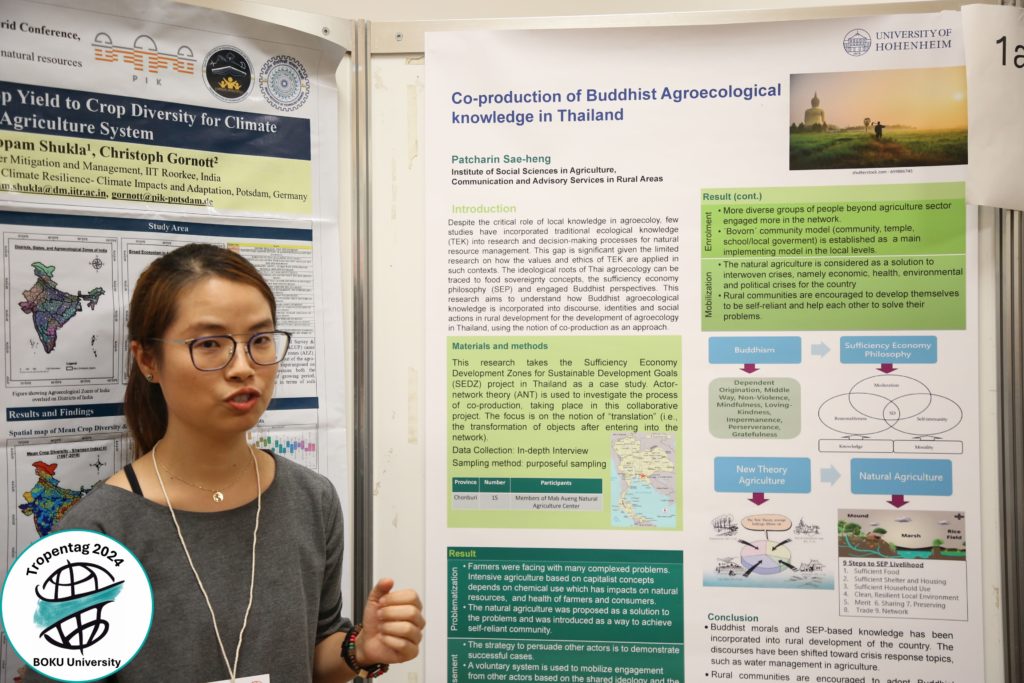Agroecology: Bridging Traditions and Science for Sustainable Agriculture
Walking around the Tropentag conference at the University of Natural Resources and Life Sciences in Vienna, one concept stands out: agroecology. This concept, although gaining a surge of attention in recent scientific discourse, is deeply rooted in ancient agricultural practices. It was first recognized as an academic discipline in 1928, but indigenous cultures around the world have been applying agroecological principles to farming for centuries.1 According to the Food and Agriculture Organization (FAO), agroecology “seeks to optimize the interactions between plants, animals, humans, and the environment while also addressing the need for socially equitable food systems within which people can exercise choice over what they eat and how and where it is produced.“2 The framework of agroecology can be thus adapted to agroecosystems worldwide while respecting the cultural context to which it is applied.

Buddhism and agroecology: A case study from Thailand
For agroecology to be effective, it must be adapted to the local context. This means valuing and incorporating the knowledge, traditions, and cultural practices of the farming communities in which it is implemented. By doing so, agroecology becomes more relevant and equitable to the specific needs of farmers and the environment. This local adaptation ensures that agroecology does justice to the diverse realities of different regions, climates, and cultures.
An example of a case study at Tropentag 2024 that sheds light on the role of local knowledge in agroecology was presented by Patcharin Sae-Heng (University of Hohenheim). Her research, titled Co-production of Buddhist Agroecological knowledge in Thailand, explores the role of Buddhism in the agricultural transition in Thailand. In the predominantly Buddhist country, Buddhism provides a lens to interpret human-nature relations, for example in agriculture. Buddhist teachings, such as non-violence, mindfulness, and gratefulness, share a great resemblance with the 13 Principles of Agroecology.

Sae-Heng’s research shows the importance of local knowledge in the agroecological movement. By integrating Buddhist teachings into agroecological practices, farmers in Thailand are creating farming systems that are both spiritually and environmentally aligned with their communities. This example highlights a broader message: successful agricultural transitions rely on the co-creation of knowledge, where scientific insights and traditional wisdom come together.
- Māramatanga: Indigenous Agroecology. Retrieved September 13, 2024. ↩︎
- Food and Agriculture Organization of the United Nations: Agroecology Knowledge Hub. Retrieved September 13, 2024. ↩︎
Author: Lisa Vissers


